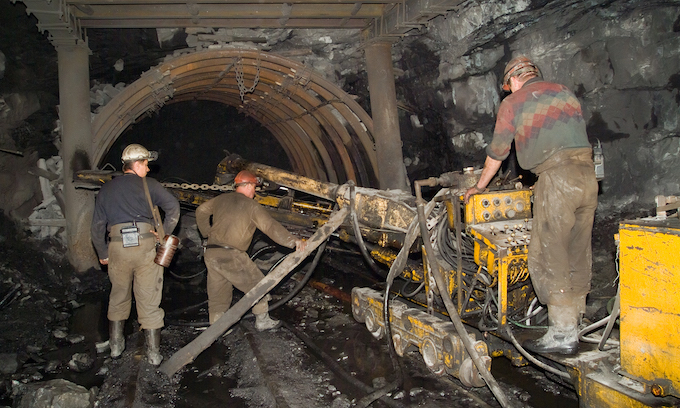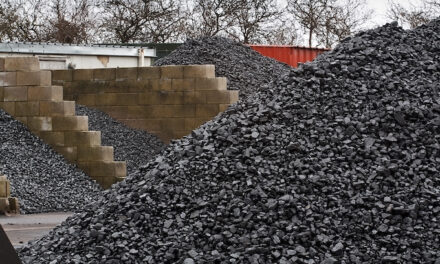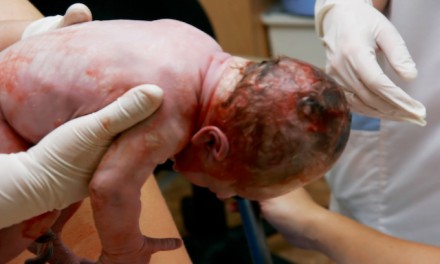“Learn to program.” That’s the Democratic Party’s new rendition of “let them eat cake,” the prescription for 18th-century French peasants who had no bread.
Democratic presidential primary front-runner Joe Biden said “learn to code” after callously stating his disregard for the millions of blue-collar jobs jeopardized by his party’s war on fossil fuels. Unemployed coal miners should simply crack the books and embark upon computer work. It’s just that simple.
During a Democratic debate in December, a moderator asked Biden if he would continue supporting renewable energy mandates “knowing potentially that it could displace thousands, maybe hundreds of thousands of blue-collar workers?”
“The answer is yes,” Biden said. “The answer is yes…”
For thousands of workers in rural Colorado, this is no longer a hypothetical dilemma of the future. Last week, the Tri-State Generation and Transmission Association announced plans to close its coal-fired power plants in Colorado and New Mexico by 2030. The utility has come under intense pressure to abandon coal and will reap financial rewards for doing so. The Colorado Public Utilities Commission typically allows power companies to bill customers for wind and solar investments while continuing to charge them for abandoned coal-fired assets.
In the simplest terms, utility companies benefit financially by going “green” and demanding more green from ratepayers.
The Grand Junction Sentinel reports the closure of the Craig Station coal plant in far northwest Colorado will kill 253 jobs. The plant’s demise almost guarantees closure of the Colowyo Mine, which supplies the plant with coal, ending an additional 219 jobs. It could also put the Trapper Mine out of business, eliminating a few hundred more jobs.
“It’s one heck of a way to start the new year,” said Moffat County Commissioner Ray Beck, as quoted by the Sentinel.
To understand the economic toll, consider that El Paso County’s population is 54 times larger than the population of Moffat County. That means a loss of 500 jobs in Moffat County feels like a loss of 27,000 jobs in metro Colorado Springs.
That’s just the beginning. The loss of jobs directly related to coal will ripple through the economy, harming all varieties of small businesses. It will undermine the housing market and the tax base. The Sentinel reports that 40% of Moffat County’s 4,700 jobs are linked directly or indirectly to coal.
The race to abandon coal, and the artificial financial incentives to do so, result partly from bills signed into law by Gov. Jared Polis in 2019. Polis and Democratic legislators want Colorado running on 100% “renewable” energy by 2040.
“This loss of these jobs is on the governor’s hands and on each of those that voted for his plan. They should be forced to look these impacted families in the eyes and explain to them why they think their livelihoods are not important enough to save,” said U.S. Rep. Scott Tipton, as quoted in the Sentinel.
With carbon capture and other filtering technologies, utilities can burn coal without causing substantial environmental harm. Clean coal technologies are constantly improving, eliminating any real need to abandon our country’s most abundant and affordable fuel.
For rural communities in West Virginia, Colorado and other coal-producing states, coal is a way of life. It employs Little League coaches. It pays mortgages. It sustains families, churches and nonprofits that define communities. People who go to work in mines and power plants, or operate coal trains, probably don’t want to sit in cubicles staring at computers.
For Democrats imposing their will on country folk, none of that matters. They know best. Let them program code.
The Gazette editorial board
___
(c)2020 The Gazette (Colorado Springs, Colo.)
Visit The Gazette (Colorado Springs, Colo.) at www.gazette.com
Distributed by Tribune Content Agency, LLC.
—-
This content is published through a licensing agreement with Acquire Media using its NewsEdge technology.



















Recent Comments